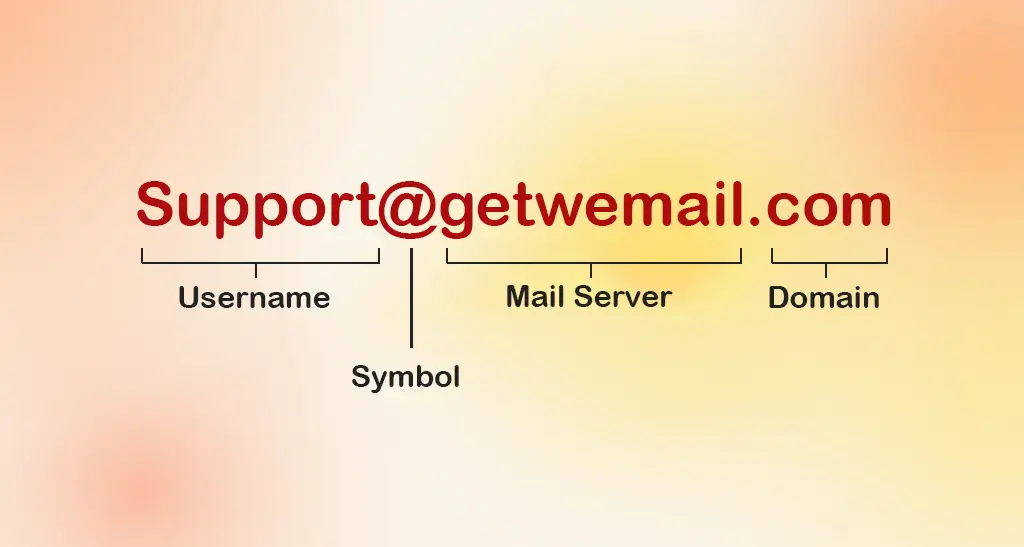Are Email Addresses Case Sensitive – Standard Email Address Syntax With Best Practices

What if you use capital letters in your email addresses? Has this thought ever crossed your mind?
Usually, we don’t get to see or use uppercase when creating an email address. But if you face this question asked by someone or even ask yourself – are email addresses case sensitive? What should be the answer?
We are here to clear all of your confusion in this blog. Keep reading.
What Is Case Sensitivity?
Case sensitivity refers to the system in which capital letters (uppercase) and small letters (lowercase) are treated differently, although two words look the same. For example, in a case-sensitive system, ‘Orange’ and ‘orange’ are treated differently.
Case sensitivity is important in various contexts, like programming languages, databases, and passwords. Besides, people often use a combination of lowercase and uppercase letters to create strong passwords. For example, ‘PaSsWorD’.
However, this has no impact on email addresses. The following discussion will further explain the topic – are email addresses case sensitive!
Are Email Addresses Case Sensitive?

The answer is no, they are not case sensitive. You can use capital letters in your email addresses. It is allowed on all modern mail servers. And there are no such restrictions and rules which doesn’t allow uppercases and stop your email from being delivered.
There may be a few exceptions in the case of any outdated mail server, which can have difficulty reading your email syntax with uppercase or a mix of uppercase and lower cases.
However, it is safe to say that most email server accepts your email address that follows the guidelines. Uppercase or lower case doesn’t have any technical impact.
Why Should You Avoid Mixed Letter Cases?
But our recommendation is to use lowercases which is a global practice, and it is good for eyes to read. For example, look at the two email addresses below –
What do you think looks soothing? In rush hour, when you open your inbox, can you give much time to something that is hard to comprehend? Uppercase can give you that hard time because your mind is used to reading email addresses written in small letters.
What Are the Email Address Standards?

To recognize your email address text, you need to comply with email address standards. As every email server has well-established standards, and this is the first thing you need to follow. If you go for the wrong syntax, you will be lost (I mean, your email addresses would be going nowhere).
Well, the standards here are pretty simple. You need to comply with username and domain name rules which aren’t that complex.
Username or Local Part Standards
Username is the letters you write before the ‘@’ symbol in any email address. You can use up to 64 Latin characters and numbers within o to 9 here. This part of your email address is also called the local part or unique address.
Domain Information Standards
Domain guides the web where to send your emails. It is the part you include after the ‘@’ symbol. It must match the requirements for a hostname, a list of dot-separated DNS labels, each label is limited to a length of 63 characters and consists of the following –
- Uppercase and lowercase Latin Characters
- digits can be used from
0to9
Well, these are the widely regarded email address standards. Now, we can proceed to the answer “are email addresses case sensitive?”
What Different Email Servers Think About Case Sensitive Email Addresses

The answer is simple here. The biggest email server like Gmail or top ones like yahoo, AOL, Zoho, and Outlook have no objections to allowing uppercase in email addresses. So, you don’t need to think twice about email servers regarding case sensitivity.
Though, our recommendation would be the same – don’t go for them. Machines can learn difficult languages, but you must think about user experience too. It is crucial to make your email addresses look simple before the recipients.
Are Email Addresses Case Sensitive in Regard to Special Characters

Using different types of font in your email body or messages can be fruitful in case of user experience. Beautiful fonts and special characters can make your email look beautiful.
But can you use special characters in any email address? Maybe you see some common use of using _, -, numbers, etc.
However, most email servers allowed the following special characters like ! # $ % & ‘ * + – = ^ _ {} ~
Except for Gmail, it doesn’t allow the following & = _ ‘ – +
There are some other restrictions you can find in Gmail guidelines which is the biggest email server in the world.
So, despite a thirst for creating a unique email address, it would not be a best practice to utilize special characters in your email addresses.
Is it Allowed to Use an International Symbol in Email Addresses?
What is an international symbol in email addresses? Usually, alphabet or numbers in Russian, Chinese, or Greek rather than Latin characters can be marked as international symbols. Though rare, you can find them occasionally. Take a look –

Though, the majority of email communication is based on Latin characters and the standards of ASCII character encoding (American Standard Code for Information Interchange). These communication standards help to communicate language through computers and other devices.
As most email servers use Unicode which bridges the gap between different international symbols and the Latin alphabet aka characters, it allows sending and receiving emails through all languages like German, Indian, Russian, and Greek.
There are some email service providers (which can be exceptions) that don’t support international symbols to use in email addresses.
How to Write Strong Email Addresses: Best Practices
Well, in light of our discussion about case sensitivity, you must consider the following best practices for writing strong email addresses.
1. Keep It Simple
Keep your email addresses very simple so they are easy to read. If your address is composed of a variety of numbers, symbols, and characters, users will fail to read and memorize it. The fear is that they may even count it as a spam email.
2. Avoid Mixed Letter Cases
As already described above, don’t use mixed letter cases while writing your email addresses. Because it may cause a readability problem among email recipients.
3. Maintain Character Limits
Keep your email address reasonably short. Long addresses can be hard to type and remember, which may lead to mistakes.
4. Avoid Unnecessary Numbers
When a name is already taken, people tend to use numerical figures (e.g., 123456) to make their email address unique. But be careful while doing this. Because too many numerical figures can make an email hard to read.
Closing Up
So, here we are. Are email addresses case sensitive? No, they are not. But should you go for uppercase? You know that answer too. We aimed to cover all the common questions regarding this issue throughout the blog.
Composing an email address isn’t that hard. But it’s always good to raise questions. It is good for the big cool reason – learning new things and opening up the doorway of possibilities.
We believe, that now you can compose your email addresses with proper technical aspects and easiness. Cheers!








